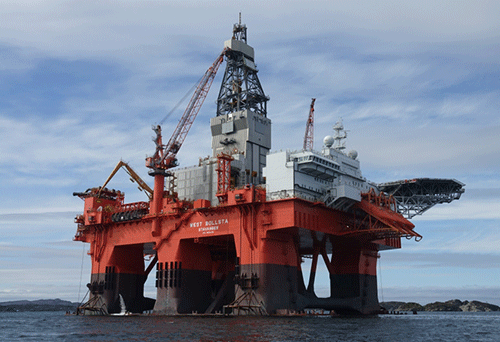Shell has reportedly made another major discovery of hydrocarbons, the main components of oil and gas in the Orange Basin. Once confirmed, this will be Shell’s second major discovery in the vicinity, where TotalEnergies last year also confirmed a major discovery of light crude.
According to online publication, Upstream, Shell’s Jonker-1 well made the hydrocarbon found early this year in a different geological area to its previously successful Graff and Rona wells, where it confirmed significant discoveries last year.
However, validation of this latest find was not confirmed by the mines ministry at the time of going to press.
Shell also declined to comment on the status of its latest Orange Basin well.
Shell operates Petroleum Exploration Licence 0039, which covers blocks 2913A and 2914B, with a 45% working interest. QatarEnergy also has a 45% stake, while the State-owned National Petroleum Corporation of Namibia (Namcor) holds 10%.
Meanwhile, to bolster its search activities in the exploration hotbed of the Orange Basin, Shell spent over N$2 billion to secure the services of the semi-submersible rig, called the Deepsea Bollsta, for a year, with an option to extend the services for another six months if necessary.
In the online update, Upstream noted the rig commenced drilling in mid-December last year.
“The probe is chasing a different geological play to the Upper Cretaceous light oil discoveries made last year by Shell’s Graff-1 and La Rona-1 exploration wells. Instead, Jonker-1 is targeting an eastern extension of the Lower Cretaceous oil and gas play that TotalEnergies hit with its Venus-1 probe in adjacent Block 2913B in 2022, potentially Africa’s largest-ever offshore discovery. Three informed sources told Upstream in recent days that Jonker-1 has hit hydrocarbons in a shallow reservoir, offering significant encouragement for what may yet be found in the probe’s deeper primary objective,” the Upstream article stated.
While the size of the latest well by Shell has not been confirmed, industry insiders estimated the company could achieve flow rates of 2 000 to 3 000 barrels per day.
Moreover, industry experts do not expect Shell’s Jonker well to be in direct communication with the TotalEnergies’ Venus discovery.
However, if the two discoveries are found to be overlapping, then a unitisation agreement will be required between the oil majors.
This scenario could be a no-brainer; it could be easily achieved, considering that Qatar Energy is a partner in both discoveries.
For any discovery to be commercial in water that is 3 000 metres or deeper, it will have to be a significant resource.
Industry experts believe the promise of the Graff and Venus wells has already triggered an increase in Orange Basin drilling activity.
During a recent meeting, mines and energy minister Tom Alweendo said discovering oil does not need to be a resource curse, also known as a paradox of plenty, for Namibia.
The resource curse usually refers to the failure of resource-rich countries to fully benefit from their natural resource wealth, and for governments in these countries to respond effectively to public welfare needs.
“Once a discovery has been confirmed, we will have to discuss it judiciously for it not to be a resource curse,” said Alweendo at the time.
He also emphasised the need for an increase in local oil and gas industry skills to support any upstream and downstream industrial activity going forward.


